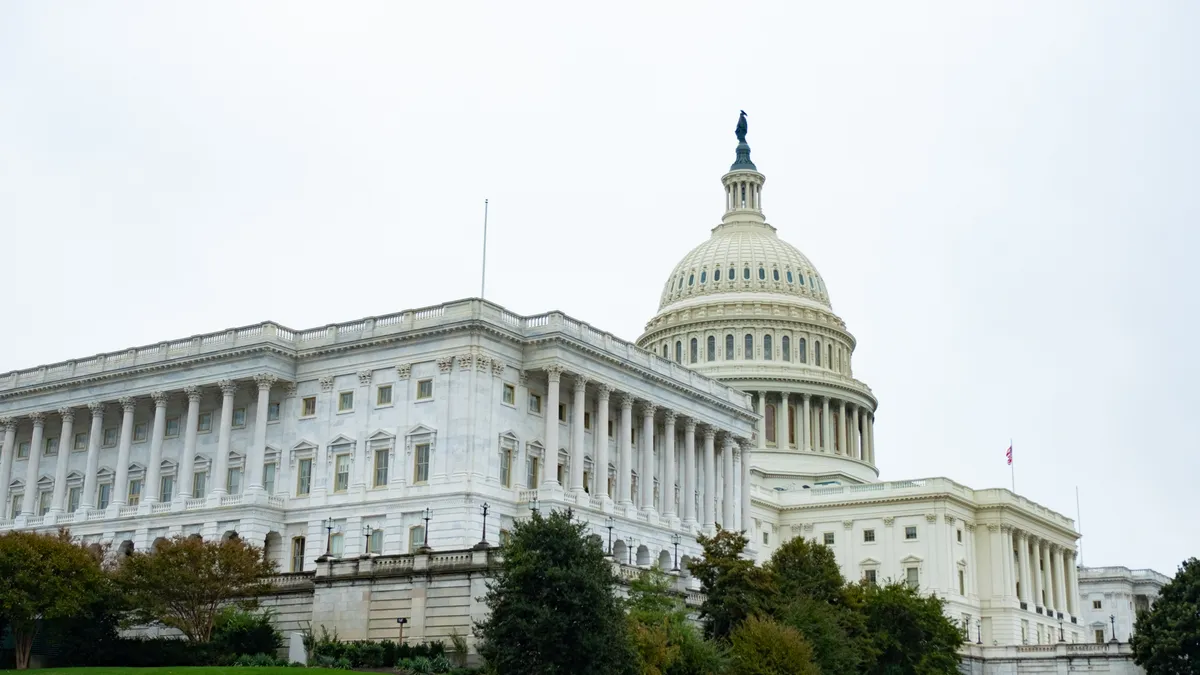Dive Brief:
-
Career Education Colleges and Universities, an organization representing for-profit schools, urged Maryland's higher education regulators in a letter this week to interpret the state's recently passed 90/10 law the same way as federal statute.
-
Maryland legislators passed a law last year requiring for-profit colleges that enroll state residents to derive at least 10% of their revenue from sources other than federal funding, which includes military education benefits. A rulemaking process is also expected for a similar recent change to federal law.
-
CECU's letter asks the Maryland Higher Education Commission to hold off on interpreting and enforcing the new state law until regulations are finalized for the federal 90/10 rule.
Dive Insight:
The leaders of five for-profit campuses in Maryland and two other industry groups joined CECU's letter, which expressed concern that the two laws could have differing definitions of federal funds.
Jason Altmire, CECU's president and CEO, said the letter is also intended as a warning to other states considering 90/10 legislation that such measures could "stray outside the bounds of the federal intent." California lawmakers proposed a bill similar to Maryland's law in February.
An MHEC spokesperson said in an email that the agency considers federal statutes and regulations when developing its policies, even though they "may not always be identical." It plans to review federal regulations and draft its own accordingly, the spokesperson said, noting that CECU's letter is not expected to impact its rules.
For more than two decades, for-profit colleges have been subject to the 90/10 rule, which bars them from receiving more than 90% of their revenue from Title IV aid. However, military education benefits historically haven't counted toward this limit, which some policy experts say has led for-profit colleges to aggressively recruit veterans.
Maryland's law sought to close this loophole. The state's new 90% calculation includes all federal financial aid for students, as well as federal grants, contracts, subsidies, loans, guarantees and insurance policies.
Starting in 2023, for-profit colleges will not be allowed to enroll new students from Maryland if they fail to meet the state law's requirements for either two consecutive years or two out of the last three fiscal years.
Congress took a similar step this year, when it approved the $1.9 trillion American Rescue Plan, which included a measure altering the federal 90/10 rule.
The amendment includes military education benefits in the 90% calculation starting in 2023. The changes are subject to a negotiated rulemaking process at the U.S. Department of Education on or after Oct. 1. If for-profit colleges fail the federal requirements for two consecutive years, then they lose access to federal financial aid for at least the next two years.
Aaron Lacey, chair of law firm Thompson Coburn's higher education practice, said CECU's argument about the federal law potentially preempting state laws has merit, even if it isn't a "slam dunk."
"We're talking strictly about federal dollars, and it's a test that's essentially already been created by the federal government," Lacey said, adding that a court would have to "be thoughtful" about whether federal law supersedes state law.
In an emailed statement, Altmire said CECU doesn't intend to take legal action, but hopes the letter will discourage states from taking a route that would "invite a response through the courts."














